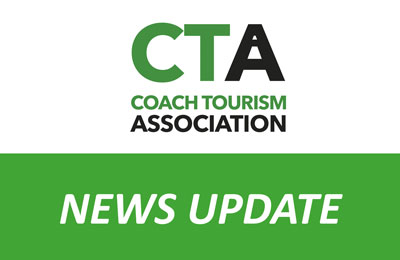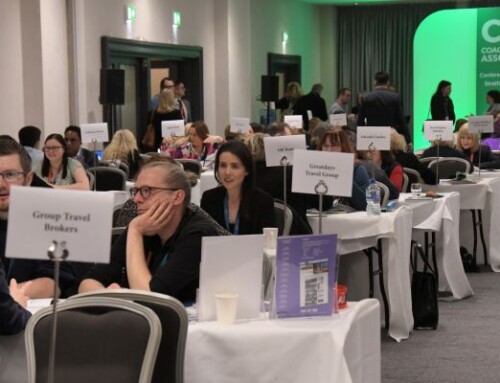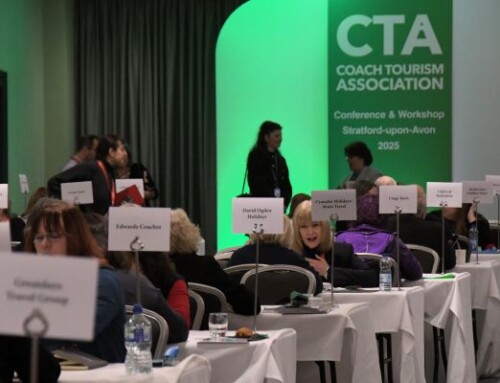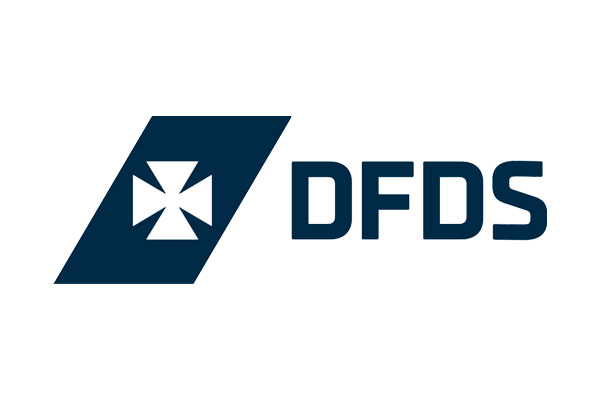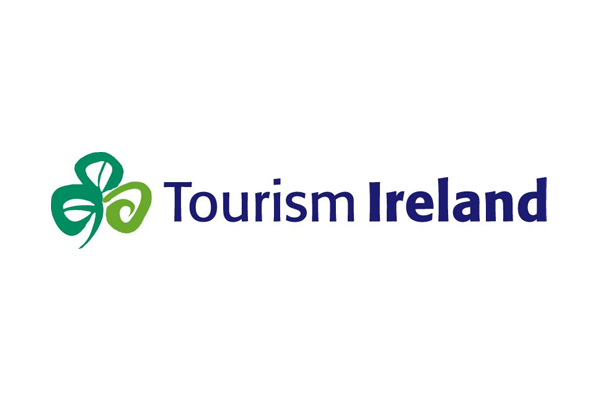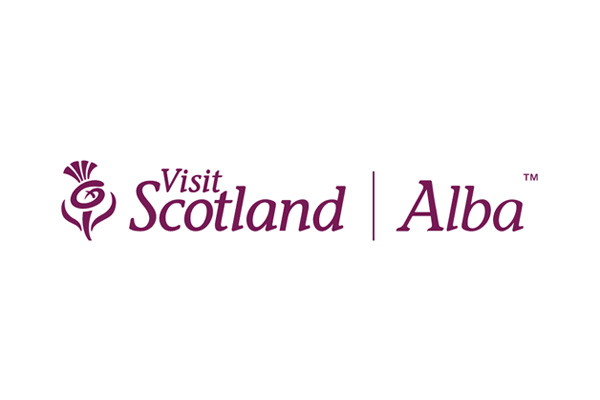COVID-19 Updates – week commencing 06/07/20
More updates of developments from the government and various links to interpretation and guidance.
Go to date:
13 July 2020 …
Tourism Alliance updates:
VAT: reduced rate for hospitality, holiday accommodation and attractions
Guidance is now available, following the government’s announcement that VAT registered businesses may apply a temporary 5% reduced rate of VAT to certain supplies relating to hospitality, hotel and holiday accommodation and admission to certain attractions. The temporary reduced rate may be applied between 15 July 2020 and 12 January 2021.
Eligible attractions for the temporary reduced rate of VAT include shows, theatres, circuses, fairs, amusement parks, concerts, museums, zoos, cinemas, exhibitions and other cultural events and facilities, but do not include admission to sporting events. Live performances that charge a fee to view online may be eligible, depending on circumstances and assuming they are not already covered by a Cultural VAT exemption. Find more information about which attractions are eligible for the reduced rate of VAT.
Information about the Eat Out to Help Out Scheme
Businesses that sell food for immediate consumption on-premises are eligible to register with the Eat Out to Help Out Scheme, designed to incentivise customers by offering a discount on food that they can later claim back from the government. The discount can be applied to food and non-alcoholic drinks sold for immediate consumption, up to a maximum £10 per diner (inclusive of VAT).
Further information is available about which businesses and sales are eligible, how to apply the discount and how to register your restaurant or eating establishment for the scheme.
The Treasury has clarified that packaged products that include food and drink are not eligible for the Eat Out to Help Out Scheme – this includes B&Bs, package offers at hotels and dinner cruises.
These products can be eligible if they are unbundled. So a Bed and Breakfast that charges £80/night could charge £60 for the accommodation and £20 for the breakfast and claim back £10
Culture Secretary Oliver Dowden encouraged the public to support local businesses by buying tickets, visiting galleries and taking advantage of the ‘Eat Out to Help Out’ offers. He also announced the following:
- Outdoor performances and recreational sport may resume, and outdoor gyms, swimming pools and water parks may reopen. Venue capacity will be reduced and electronic ticketing will be implemented to control crowds and support Test and Trace.
- Indoor gyms and swimming pools may reopen from 25 July, with appropriate measures such as enhanced cleaning protocols and pre-booking systems in place.
- A number of indoor performances will be piloted by Public Health England, in collaboration with organisations including the London Symphony Orchestra and Butlins. These test events will support related research to work out how indoor performances may resume safely.
- The planning system is also being altered to protect theatres from demolition and change of use. This comes in addition to the £1.5bn package announced last week.
- Beauticians and tattooists may reopen from 13 July, with some restrictions on high-risk services.
Northern Ireland announces quarantine exemptions, lifts further lockdown restrictions
The Executive Office has announced that travellers arriving in Northern Ireland from low or medium-risk countries will be exempt from quarantine requirements. This list is the same as for England
Ministers have further confirmed that the following may reopen from tomorrow, 10 July:
- Indoor fitness studios and gyms
- Bingo halls and amusement arcades
- Outdoor leisure playgrounds, courts and gyms
- Cinemas
- Indoor baptisms, weddings and civil partnership ceremonies at places of worship or local government venues
Outdoor competitive games and sporting events including horse racing and equestrian competitions may resume from 11 July without spectators.
Libraries may reopen from 16 July with social distancing measures in place. Indoor sport and leisure facilities, including skating rinks and leisure centres but excluding swimming pools, may reopen from 17 July.
Wales quarantine restrictions lifted 10 July
The Welsh government has announced that travellers from a list of countries will be exempt from the 14-day quarantine requirements put in place by COVID-19 regulations. These exemptions will go into effect on 10 July and are in line with those countries exempt in England
Consumer Sentiment Tracker report from VisitBritain (Week 7)
The latest UK COVID-19 Consumer Tracker Report is available for week 7, based on fieldwork from 29 June to 3 July.
The major shift this week is a significant increase in the proportion of UK adults claiming to be confident they would be able to take a domestic short break or holiday during July, which has risen from 14% last week to 21%. However, this confidence shows only a slight increase in subsequent months, people are still adopting a cautious ‘wait and see’ approach. This is supported by the proportion of people expecting life to return to ‘close to normal’ anytime soon – currently 15% expecting ‘normality’ by September and just 35% by December.
More positively, we again record an increase (albeit a small one of +1%) in the proportion of UK adults expecting to actually go on a domestic short break or holiday by September, with 25% now claiming they will do so.
Here is the guidance for the accommodation sector during local lockdown
The following communication was shared with the accommodation sector in Leicester on 3 July, offering guidance for how to proceed during a local lockdown.
As you know, on 4 July the lockdown restrictions being lifted across England will not apply to Leicester, which will continue to face a local lockdown. No new easements will be introduced at this time and non-essential retail, which had previously been open, will now need to close.
Those travelling into, out of and within the Leicester area will be advised to travel only if essential. Those who want to travel for a holiday will be advised not to do so and residents within the lockdown area will not be allowed to make overnight stays.
Accommodation within Leicester
Accommodation can still be provided for reasons previously allowed, those being:
- people who live in the accommodation permanently as their main residence;
- any person who is unable to return to their main residence, including non-UK residents who are unable to travel to their country of residence during this period;
- those isolating themselves from others as required by law;
- any critical worker that is part of the effort to deal with coronavirus, if the stay is necessary for their work;
- an elite athlete, their coach, the parent of an elite athlete (in the case of an elite athlete under the age of 18), or elite sports event and athlete support staff, if they need accommodation for the purposes of training or competition;
- those permitted to attend a funeral (that is: (i) members of the deceased person’s household; (ii) close family members of the deceased person, or (iii) if no-one within (i) or (ii) is attending, a friend of the deceased person), who need short term accommodation for that purpose;
- to support or provide accommodation to the homeless, including through arrangements with local authorities and other public bodies;
- those who need accommodation while moving house.
Outside of the exemptions above, overnight stays in the Leicester area will not be allowed.
Accommodation outside Leicester
Residents within the lockdown area will be responsible for abiding by the law, including restrictions on making overnight stays. There will be no legal obligation for accommodation providers outside the lockdown area to check whether guests are resident within the lockdown area, or to enforce the law by turning people from Leicester away.
However, we encourage all accommodation providers to consider their approach towards guests from Leicester. Accommodation providers may wish to communicate to all customers with existing bookings, reminding them of the law and giving them a chance to cancel their bookings.
Accommodation providers should follow all government guidelines on working as safely as possible and protecting their staff and customers during the COVID-19 pandemic.
Accommodation providers may decide to cancel bookings from guests from Leicester whilst the local lockdown is in place. The decision to refuse service is at the discretion of the business owner, and the terms of the booking contract may allow for discretionary cancellations. If you are cancelling a booking, this should be done with sufficient notice to the guest, and we would expect any funds already paid by the consumer to be repaid.
If a booking is cancelled, either by the guest or the provider, we encourage you to offer alternative dates if this can be agreed with the customer. If this cannot be arranged, we would encourage you to provide a refund as you have for customers during the broader lockdown period, which may depend on the terms of the booking contract.
If a guest whose reservation you have cancelled – or a holiday caravan owner whom you have advised not to visit the park – arrives at your property wishing to stay overnight in contravention of the law, you may ask the person to leave. You may wish to contact your local police force for support if a guest refuses to leave your property. Local police forces will support Local Authorities in enforcing the Coronavirus Regulations where necessary.
Updates to Coronavirus Job Retention Scheme Guidance
- Employers are able to continue to claim for employees while they are serving a statutory notice period.
- See the process HMRC is developing to recover over claimed grant amounts through the tax system.
- See additional examples of how to calculate what you can claim in the period ending on or before 31 August
Government updates
- Outdoor performances with social distancing can resume from July 11, guidance for the performing arts sector has been updated and is available.
- Arrivals from Serbia to England have been removed from the exempt list
- Guidance has been added on entertainment permitted in venues for restaurants, pubs and bars see (section 4.5) and fire risk assessments for repurposed spaces (section 4.8).
- Closure of businesses advice updated to include easing of restrictions applying from 11 and 13 July
- FAQ for the Reopening High Streets Safely Fund has been updated to reflect the latest developments.
- The CMA has published an open letter to all businesses involved in organising package holidays for UK consumers. The letter outlines their concern that many companies are not adhering to the Package Travel Regulations as well as what the consumer protection law requires of companies and the CMA’s expectations.
Further re-opening timetable for the tourism and leisure sector in Wales
The Welsh First Minister has set out a timetable for reopening Wales’ visitor economy following a 21-day review period. See below for the dates businesses can reopen:
From 11th July
- Self-contained holiday accommodation
From 13th July
- Hairdressing salons and barbershops, including mobile hairdressers.
- Pubs, bars, restaurants and cafes outdoors.
- Outdoor cinemas.
- Indoor visitor attractions, but a small number of underground visitor attractions will remain closed for the time being because of the higher risks associated with these environments. The Welsh Government will continue to work with these attractions towards safe re-opening.
- Places of worship. Faith leaders can begin to gradually resume services when they are ready to do so safely.
From 20th July
- Playgrounds, community centres and outdoor gyms
The following provisional dates have also been announced:
From 25th July
- Tourist accommodation with shared facilities, such as camping sites.
From 27th July
- Beauty sector and other close-contact services, including tattooists and nail salons
- Indoor cinemas, museums, galleries and archive services.
A final decision about reopening these sectors will depend on conditions and feedback from the initial opening of the tourism industry, indoor attractions and hairdressing sector.
The next formal review of the regulations is due by 30 July. Detailed discussions about how indoor hospitality can operate in a coronavirus-safe way are ongoing. Options for reopening will be considered from 3 August, if conditions allow.
The Welsh Government is also making changes to the regulations to allow larger gatherings of up to 30 people outdoors only where these are organised and supervised by a responsible person for sports and other leisure activities and classes.
The law in Wales will continue to make the 2m distance the default position for physical distancing, but given he challenges faced by the hospitality, beauty industry and other sectors, where a 2m distance cannot be reasonably maintained at all times. the regulations will require businesses to put in place a set of additional measures to minimise the risk of the virus spreading.
DfT assets and FAQ available for download
DfT has shared a link to their extranet where you can download resources (please download in chrome) including:
- A downloadable Q&A Word document covering some of the key information on these travel exemptions
- Graphics providing further information for people travelling abroad this summer, to use in consumer facing social media
- Updated Port and Carrier poster assets
CMA Letter to Package Travel Operators
The Competition and Markets Authority has written a stern letter to companies selling package travel to say that their initial review of 17,500 complaints indicates that businesses may have engaged in, and may still be engaging in, certain practices contrary to consumer law. In particular, they are concerned that businesses have not been meeting the requirements of the Package Travel Regulations to provide refunds no later than 14 days after a package holiday has been cancelled and may be in breach of the Consumer Protection from Unfair Trading Regulations by providing inadequate or misleading information to consumers about their statutory rights.
Outdoor Events
One of the slightly overlooked announcements yesterday was that outdoor performances in front of a live audience are allowed to restart from tomorrow. According to The Events Industry Forum Guidance that was approved by DCMS, the range of outdoor events now permitted includes:
· Air Shows
· Agricultural Shows (including town and country shows)
· Carnivals, Fun fairs, fetes, steam rallies and Community Fairs
· Car boot sales
· Circuses
· Display and Performing Arts including Street Art Events
· Firework Displays
· Flower Shows and Gardening Events
· Historical re-enactment events
· Literature Fairs / festivals
· Pet and Animal Shows
· Some music concerts (see below)
· Outdoor theatres and performing arts
The guidance on this is available on the Events Industry Forum Website
CJRS: Claiming For People Who are Not Employees
The government has issued new guidance on claiming for people who are not employees including:
You can claim a grant for individuals who are not employees – as long as they’re paid via PAYE. The groups you can claim for include:
· office holders (including company directors)
· salaried members of Limited Liability Partnerships (LLPs)
· agency workers (including those employed by umbrella companies)
· limb (b) workers
· Contingent workers in the public sector
· Contractors with public sector engagements in scope of IR35 off-payroll working rules (IR35)
Continuing with CJRS, the guidance has been updated to clarify that employers are able to make employees on furlough redundant and can continue to claim for employees who are serving a statutory notice period. However grants cannot be used to substitute redundancy payments.
https://www.gov.uk/guidance/check-if-you-could-be-covered-by-the-coronavirus-job-retention-scheme
In addition, the wording of the guidance has been added to make it clear that HMRC will not decline or seek repayment of any grant based solely on the particular choice between fixed or variable approach to calculating usual hours, as long as a reasonable choice is made.
Recovery Advice Scheme
BEIS has launched the Recovery Advice for Business scheme, supported by the government and hosted on the Enterprise Nation website, gives small firms access to free, one-to-one advice with an expert adviser to help them through the coronavirus pandemic and to prepare for long-term recovery. Thousands of expert professional and business services advisers are on hand to offer free advice, until 31st December. Small and medium sized businesses can sign up, take the diagnostic tool and access support. Advice will focus on key areas:
-
- accounting and finance
- people and building a team
- planning, strategy and pivoting
- marketing, PR and social media
- technology and digital tools
Here’s a link to the Enterprise Nation website that SMEs can use to sign up
https://www.enterprisenation.com/freesupport/
ONS Social Impacts Research
The ONS has produced new research on the social impacts of coronavirus and public perceptions, The two main finding from this of relevance to tourism businesses are not particularly encouraging
-
- Only 2 in 10 adults (21%) said they would be comfortable or very comfortable to eat indoors at a restaurant compared with 6 in 10 (60%) who said they would be uncomfortable or very uncomfortable.
- Only a quarter of adults (25%) said they were likely or very likely to go on holiday in the UK this summer, and just under 1 in 10 adults (9%) said they were likely or very likely to go on holiday abroad this summer.
R- Rate Figures
The Government has produced a new estimate of the R Rate for the UK which is 0.7-0.9, while the growth rate range for the UK-5% to -2%. However, the rates for England and the regions within England are more worrying with almost all regions having an R Rate of between 0.7 – 1.0 (which is an increase on last time) and showing growth rates which in three regions could be above zero
https://www.gov.uk/guidance/the-r-number-in-the-uk
16 July 2020 …
CPT updates:
DRIVER CPC – RESUMPTION OF CLASSROOM TRAINING
DVSA has announced that training providers can resume classroom based delivery of Driver CPC periodic training courses
Training providers must ensure they can deliver training safely and in line with Government guidance about minimising the risk of spreading COVID-19. Specific guidance for the education sector will also be relevant for training providers to follow and this is available here
DVSA stress that Driver CPC trainers are under no obligation to deliver classroom based training if they have concerns about safety
Training providers will still have the option to deliver training via a digital platform if they have received authorisation to do so from DVSA
Information about remote delivery can be found here
DVSA intend to keep these arrangements under review
Tourism Alliance updates:
New CJRS and SEISS Stats
The government has published new Coronavirus Job Retention Scheme statistics. While the statistic show that the Hospitality and Tourism Sectors are the most impacted, it should be noted that the statistics are for the period to 30th June and therefore don’t take account of the reopening of significant parts of the industry reopening on 4th July. Nevertheless the main points are:
-
- 9.4 million employments had been placed on furlough, an increase of 678,000 compared with claims made until the end of May (although this may have something to do with the need to place people on furlough before the end of June so that they were eligible for flexible furloughing in future.
- Businesses in the accommodation and food services sector had the highest proportion of employers furloughing at least some staff (87%) and the highest proportion of total employments furloughed at 73%
- Employees of small and micro-sized employers were more likely to have been furloughed than those working for medium-sized and large employers: 57% of employments at employers with 5 to 9 employees had been furloughed against just 19% at employers with 250 or more employees
- Young people are most likely to be furloughed
As a high percentage of tourism businesses are SME and tourism businesses employee a higher percentage of young people than other sectors, these statistics are particularly concerning.
On the Self-employment Income Support Scheme, the figures are also interesting but this time the interesting factor is that tourism and hospitality businesses seem to be under-represented as beneficiaries of this scheme. While 3.4 million self-employed individuals were identified as potentially eligible for the SEISS scheme the figures suggest that only around 2/3 of eligible businesses in the hospitality and tourism sector are making a claim, which is far lower than for the CJRS.
Sector specific Coronavirus Job Retention Scheme (CJRS) statistics
HMRC has today published a second release of statistics on CJRS .
On the sectoral section worth noting:
- the accommodation and food services sector has had the highest proportion of employers furloughing at least some staff (87%) and the highest proportion of total employments furloughed at 73%. 109,800 employers have furloughed staff in the accommodation and food services sector
- the accommodation and food services sector has seen a 73% take-up rate in terms of employments, with over £4.1 billion claimed through CJRS.
- arts, entertainment, recreation and other services, have seen 75% of employers in this sector furlough at least one employment – with a total of 443,000 employments furloughed in this sector with a take-up rate of 66%. Claiming in total £1.1 billion
- in London 63% of employments in the arts, entertainment, recreation and other services sector have been furloughed – Wales and the South West had higher take-up rates in this sector at 73% and 68% respectively.
Access to Work: Travel cost evidence now needed
Access to Work is a publicly funded employment support programme that aims to help more disabled people start or stay in work. The programme will provide money towards any extra travel costs associated with disabled people getting to and from work if they can’t use available public transport during the coronavirus (COVID-19) outbreak. This guidance has been updated to say that people now need to provide evidence to support a claim for travel costs.
Government confirms allocations of £500 million additional funding for councils
Local Government Secretary Robert Jenrick has confirmed allocations for individual councils from the £500 million of additional support for coronavirus-related spending pressures to help councils in England continue to deliver crucial frontline services.
VAT Cut and Flat Rate VAT Scheme
Speaking of VAT issues, if you are a business that benefits from the cut in VAT rates but operate under the Flat Rate VAT Scheme, the new Flat Rates have been announced. These are:
-
- Accommodation – 0%
- Catering Services including Restaurants and Takeaways – 4.5%
- Pubs – 1%
However, there doesn’t seem to be a reduction in the flat rate that applies to attractions that are operating under the Flat rate Scheme with the “Library, archive, museum or other cultural activity” rate staying at 9.5% and “Entertainment or journalism” staying at 12%. If you have businesses impacted by this, let me know and I will take it up with Treasury.
https://www.gov.uk/vat-flat-rate-scheme/how-much-you-pay
Online Tailored Guidance for Businesses
The Government has produced an online tool that businesses can use to generate guidance on how to open and operate safely which is tailored to how their business operates. An online questionnaire asks for information on the business sector, the number of employees, visitors, suppliers and whether staff work on site to generate a comprehensive list of the actions that should be taken to ensure that a proper risk assessment is undertaken and that the business operates in a Covid safe manner.
https://www.gov.uk/coronavirus-business-reopening
Outdoor events resuming in England from 11 July
Outdoor performances in front of a live audience are allowed to restart in England as of Saturday 11 July. According to The Events Industry Forum Guidance that was approved by DCMS, the range of outdoor events now permitted includes:
· Air Shows
· Agricultural Shows (including town and country shows)
· Carnivals, Fun fairs, fetes, steam rallies and Community Fairs
· Car boot sales
· Circuses
· Display and Performing Arts including Street Art Events
· Firework Displays
· Flower Shows and Gardening Events
· Historical re-enactment events
· Literature Fairs / festivals
· Pet and Animal Shows
· Some music concerts
· Outdoor theatres and performing arts
